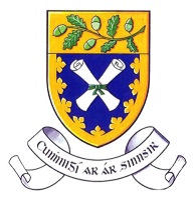
"Ireland's most active genealogical society"
Irish DNA Atlas Published
Prof. Gianpiero Cavalleri (RCSI), who directed the research, stated “for our study design to work, it was vital for us to collaborate with the Genealogical Society of Ireland. They helped us reach the very specific cohort of people needed: people who could demonstrate that all 8 of their great-grandparents had been born within 50km of each other. This has allowed us to create a genetic map for the Irish population, with resolution similar to that recently drawn for England. Whilst we are delighted by what the study to date has revealed, this is a live study; the more people who participate the greater resolution we can achieve.”
Key Findings
- That prior to the mass movement of people in recent decades, there were numerous distinct genetic clusters found in specific regions across Ireland
- Seven of those revealed so far are of ‘Gaelic’ Irish ancestry and describe the borders of either Irish Provinces or historical kingdoms.
- The remaining three are of shared Irish-British ancestry, and are mostly found in the north of Ireland and probably reflect the Ulster Plantations.
- Two of the ‘Gaelic’ clusters together align with the boundaries of the province of Munster, and individually are associated with the boundaries of the kingdoms of Dál Cais and the Eóganacht.
- There are relatively high levels of North-West French-like (probably ‘Celtic’), and evidence of West Norwegian-like (probably Viking) ancestry within Ireland.
- There is evidence of continual, low level migration between the north of Ireland and the south and west of Scotland.

The Irish DNA Atlas
The Irish DNA Atlas Project is an exciting and very important collaborative research project undertaken by the Genealogical Society of Ireland and Dr. Gianpiero Cavalleri of the Royal College of Surgeons in Ireland.
The Project was launched at the ‘Back To Our Past’ exhibition in the RDS, Dublin, in October 2011 and received considerable coverage in the media. The main objectives of the project are to (1) to further our knowledge of the population history of Ireland and (2) to help us understand how genes influence health in Ireland.
Participants are sought from across the island of Ireland and, indeed, from overseas who can trace each of their eight great-grandparents to the same general area of Ireland to present a Birth Brief (Pedigree Chart) and to provide a DNA sample (kit provided) for analysis. The Society continues to seek volunteers but we are unable to respond to each request immediately as the GSI is a voluntary body with limited resources. We will hold all requests and respond at a later stage.
In August 2013, the Project Team welcomed Dr. Darren McGettigan as the Historical Director of the Project. Dr. McGettigan brings a wealth of experience in researching early and medieval Irish history to the analysis of the surnames and the interpretation of the data in relation to historical events and the known population movements and settlements in Ireland.
Checkout the Irish DNA project newsletter
